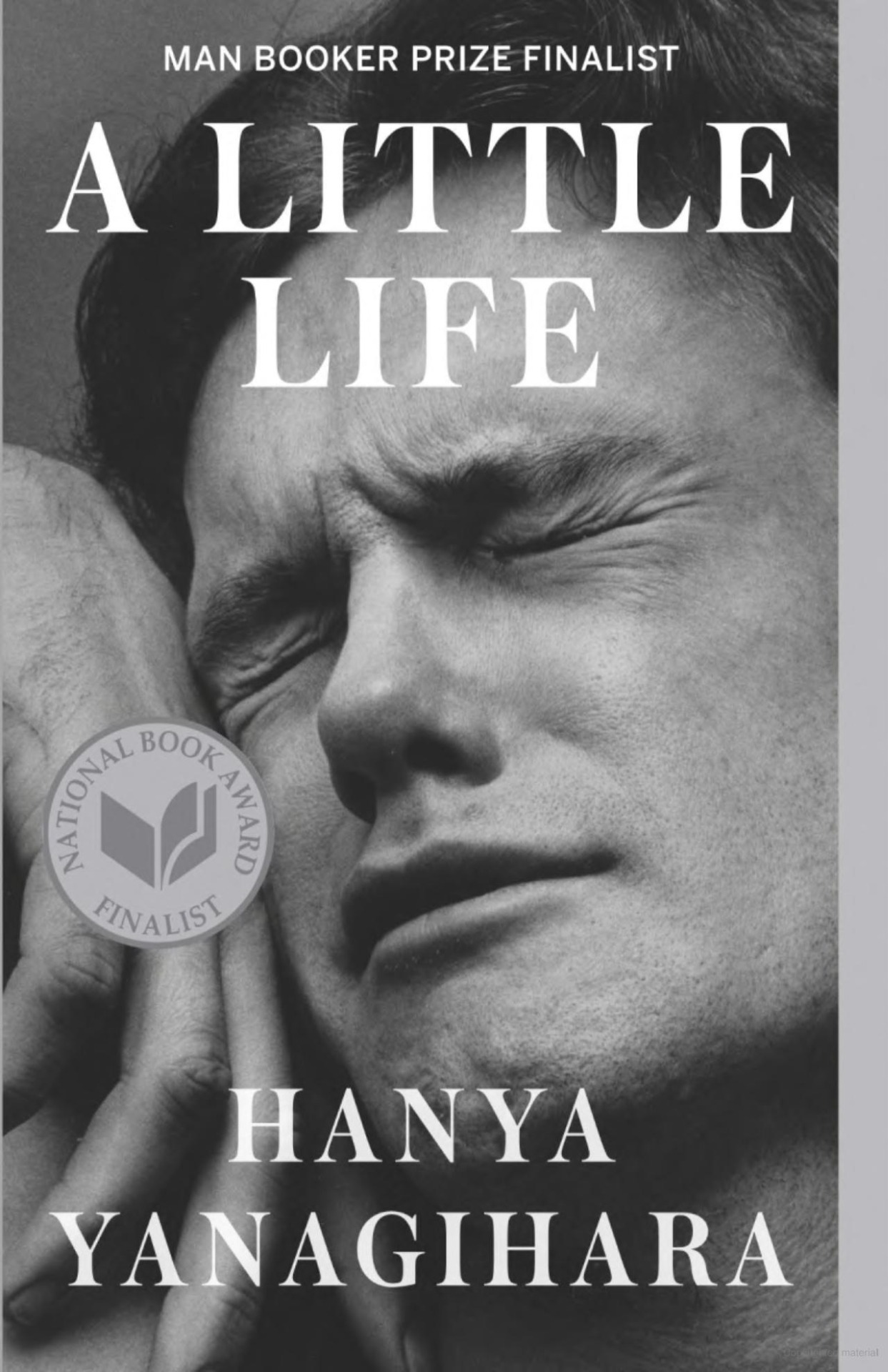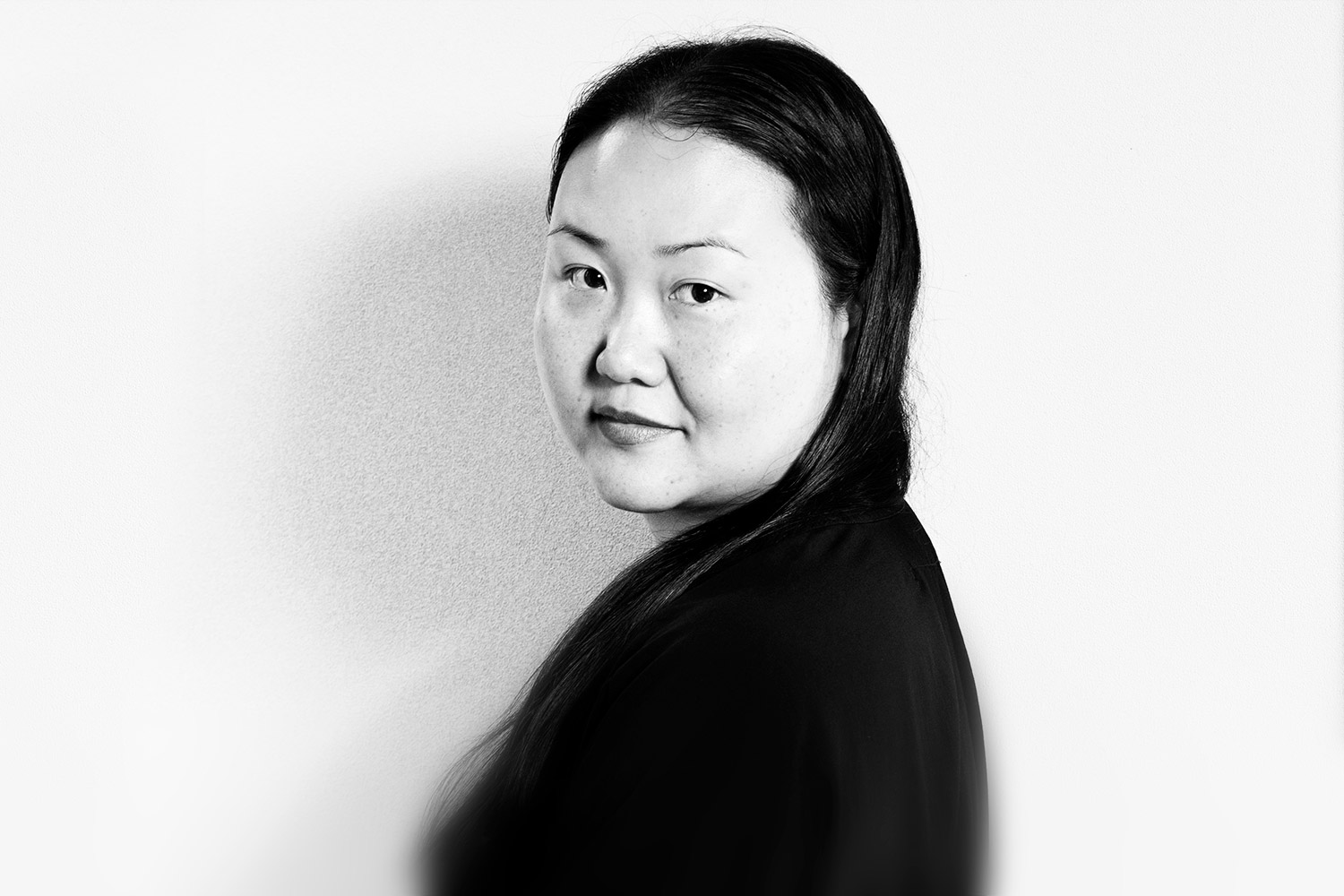A Little Life
A LITTLE LIFE - HANYA YANAGIHARA
*TRIGGER WARNING ADVISORY
A Little Life by Hanya Yanagihara, an acclaimed American novelist, follows the story of four men in their life post-college in New York City: Willem, an aspiring actor waiting for his big break, JB, the artist with an invasive personality, Malcolm, the architect residing in his parent's house, and the protagonist, Jude: The intelligent lawyer with a troubled and secretive past. Over the course of this novel, the story progresses from the four friends' youthful days as undergrads to their journey's in their distinguished careers in their middle ages. Simultaneously, the novel travels back into Jude's upbringing, slowly elucidating his traumatic past, explaining and analyzing Jude's behavior and lack of self-confidence in the present day. The novel is mostly narrated in the third person, following one character's perspective at a time, and shifts between the past and the present. Willem's perspective follows his insecurity regarding his career as a failing actor, and Malcolm's perspective follows his parental-ignited and pressured career as an architect. JB's perspective conveys his struggles with drugs and regrets regarding his friendships and relationships. At the end of the book, Harold, Jude's adoptive and doting father, is written in the first person, done to convey Harold's direct response and emotions to the final, tragic events of the novel, which enforces a deeper and more emotional response upon the reader in the conclusion of this heartbreaking, yet impactful book. This novel, despite its extraneous length of 720 pages, was so well-written and intriguing through its attaching, sorrowful story. Yanagihara's purposeful writing flowed well and I thought this novel was an easier read through its direct and meaningful writing. Yanagihara's writing does a beautiful job of encapsulating and attaching the reader to the characters, making the reader empathize and resonate with each emotional detail portrayed. Unmistakably devastating, A Little Life left an impactful mark on me. Upon the conclusion of the book, I felt an urgent desire to pick the book up again and reread each detail with the intent of finding peace for Jude St. Francis and reliving the tragically exceptional story.
A Little Life, similar to Yanagihara's other works of literature, does an exemplary job of being uniquely devastating, yet socially important, revealing an abundance of windows and mirrors. This novel opened up a vast number of windows for me, especially in the themes of grief and people's unique response to it. A new perspective offered to me through this book was the issue of how childhood trauma develops one's self's worth, preventing one from accepting love and care from those around them. Jude, abandoned as a newborn, spends his youth in the care of foster homes and religious facilities, with a string of male supervisors abusing him, scaring him emotionally and physically. These experiences remain implanted within him throughout his lifetime and emanate his concept of feeling undeserving of healing and love. Through the course of this novel, I also found several characteristics and themes reflected in my own life, as this novel does an honest job of depicting the realistic nature of true society. Out of the four friends, the character I found reflected in myself the strongest through his career pressures and struggles was Malcolm. Although a talented and successful architect latter on in his age, his early career is infiltrated with imposter syndrome and a sense of misery from pressure, which influenced his career: "At such times, he envied his friends for the exact things he had once pitied them for: the fact that no one had any expectations for them, the ordinariness of their families (or the very lack of them), the way they navigated their lives by their ambitions...He had lost his ability to imagine anything. And so every evening while the others created, he copied: he drew buildings he had seen on travels, buildings he had lived in or passed through. Again and again, he made what had already been made, not even bothering to improve them, just mimicking them. He was twenty-eight; his imagination had deserted him; he was a copyist (Yanagihara 64,65). Through his pressured career, the joy Malcolm once held regarding architecture and buildings has subsided into a task motivated by the ideals and dreams of his parents' expectations, which have abated his passion for his career, dulling his creativity. In recent years, as the reality of life has more severely dawned on me through aspects of school and my future, like Malcolm, I've felt a sense that everything I do lacks the youthful creativity I previously obtained before the realities of the world infiltrated my life through pressure. Similarly, without the carefree wit of my younger self, I have found the presence of my creativity and joy for extracurriculars have dwindled with the constraints of the pressure of reality.
This novel focuses on sexual abuse, suffering, life-long grief, and the response and attempts of recovery to trauma, which connect to how the courage of individuals impacts themselves, others, and society. From the actions Jude endured during his years as a teen, he learned to cope with his trauma in several unhealthy ways. Jude's childhood trauma remains implanted within him for the remainder of his life and implements a deep sense of shame and insecurities, preventing him from accepting the love his friends and future adoptive parents exert upon him: "The person I was will always be the person I am, he realizes. The context may have changed: he may be in his apartment, and he may have parents and friends he loves. He may be respected; in court, he may even be feared. But fundamentally, he is the same person, a person who inspires disgust, a person meant to be hated...he knows the x will always equal x, no matter what he does" (Yanagihara 340). Despite the success of his career and the presence of his loved ones, the sense of self-repulsion remains instilled within Jude despite the time which has passed since his teens. He allows his trauma to define him and convinces himself he is, and will always remain, the same person as the trauma from his childhood, coining the axiom of equity, x = x, to define himself as undeserving of growth. Through these negative feelings, he reacts by self-harm, which he rationalizes as a way to resort himself back to his deserved temperament; his childhood years, which embody x.
This book also elucidates how grief impacts loved ones and those around us. Jude's self-harming actions and thoughts impact not only himself but also the people who care deeply about him. Willem, Jude's closest friend, whom he opens himself up to the most during their years together, knows something's wrong, but, young and afraid, avoids the topic. Later, as Willem begins to sense the severity of Jude's self-harm, he confronts Jude several times, all of which result in Jude's irritation terminating the conversation. Throughout the novel and Willems perspective, Jude's negative view of himself and the actions he takes motivated by those thoughts impact Jude's loved ones, such as Willem and Andy, Jude's doctor, who repeatedly pleads with him to abate his self-harming actions. In the later part of the novel when Jude intentionally burns himself as a method of coping, Willem vomits when presented with this news: "And when he thinks of Jude doing that to his own skin, he imagines orange chewing through his flesh, and he is sick. 'Pull over,' he gasps to Jude, and Jude screeches off the road and he leans out of the car and vomits until he has nothing more to expel. 'Willem,' he hears Jude saying, and the sound of his voice enrages him and devastates him both" (Yanagihara 524). Jude's anguish impacts Willem and others who love and care deeply about him as the thought of the harm he is inflicting upon himself because of what he believes is devastating.
This book was beautifully devastating; I look forward to re-reading Jude's story again.

5/5 stars
Quotes:
"None of them wanted to listen to someone else's story anyways; they only wanted to tell their own" (Yanagihara 94).
"[H]e sometimes wished he had a mind like JB's, one that could create stories that would delight others, instead of the mid he did have, which was always searching for an explanation, and explanation that, while perhaps correct, was always empty of romance, of fancy, of wit" (Yanagihara 130).
"Things get broken, and sometimes they get repaired, and in most cases you realize that no matter what gets damaged, life rearranges itself to compensate for your loss, sometimes wonderfully" (Yanagihara 133, 144)
"At night, he prayed to a god he didn't believed in. and hadn't for years: Help me. help me, help me, he pleaded. He was losing himself; this had to stop. He couldn't keep running forever" (Yanagihara 389)
"He was unable to convince of a life without him, because Willem had so defied what his life was and could be" (Yanagihara 641).
"But then didn't everyone tell their lives--truly tell their lives--to one person?" (Yanagihara 669).

Hanya Yanagihara: author of The People in the Trees and To Paridise